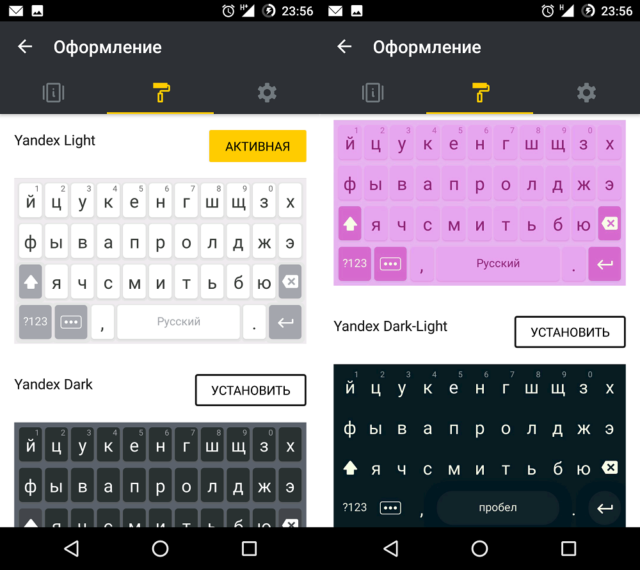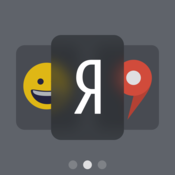I want to tell you about the new keyboard from 'Yandex' for Android and just a little about the company itself.
Introduction
Yandex loves to compete with Google in two ways – by developing competitive products or by resorting to legal action. Many people remember the story when Yandex complained to the Federal Antimonopoly Service of Russia about Google that the American company allegedly violated the Law on the Protection of Competition and did not allow Yandex to grow. They proposed to separate the operating system Android from Google services. The precedent is very curious and indicative, but today is not about that.

The example described above can be regarded as a desperate move by Yandex. After all, it is quite difficult to compete with Google on their own field, although no one, as I know, bothers anyone to release decent products for Android. However, Yandex is not giving up, which is commendable. Using the example of the new Yandex.Keyboard application, we will assess the competitiveness of Russian software.
'Yandex.Keyboard'
Yandex on May 31 presented its keyboard for the system Android. They previously debuted their product for iOS. According to company representatives, the keyboard has been downloaded more than 300 thousand times. But this figure does not mean anything, since third-party keyboards for iOS are, in principle, not very popular.

Left – 'Yandex.Keyboard', right – keyboard from LG
Unfortunately, Yandex has not brought anything new to mobile keyboards. Well, to be completely honest, the first two themes Yandex Light and Yandex Dark outwardly remind me of the keyboard LG UI 4.0. To be fair, I note that after the Swype and Fleksy keyboards, it is rather difficult to come up with something unique.
Languages
The keyboard is in many ways familiar – 4 rows of keys, changeable themes (4 in total), text prediction, built-in dictionary. However, there are some peculiarities. For example, language switching is implemented with swipes from the left edge of the screen to the right and vice versa. This solution is not very convenient – it is often impossible to change the layout the first time. A separate key for changing the language is much more convenient, as, for example, in the keyboard from Google. By the way, English, Russian, Belarusian and Ukrainian languages are supported.

There is support for autocorrect and word prediction. Everything is simple here – the longer you use the keyboard, the better the word substitution system works. There is also a voice input mode. It works well, but there are problems with punctuation.
Text input
Yandex.Keyboard is a representative of the old school. There are no gestures like Fleksy, or continuous typing like Swype or Google Keyboard. The text is entered using the usual tapes on the keys. The lack of an additional row with numbers is upsetting, now for this you need to either go to a separate menu with additional characters, or enter by long pressing on the top row of keys, which is rather slow.
Features:
The keyboard has an additional menu, where there are tabs with emoticons, Gifs, places on the map and a built-in translator.

The application contains its own catalog of animated pictures that can be sent to your interlocutor with one click. This is far from a new idea, and it seems to me that few people use this.

A separate tab with potentially interesting points on the map looks more interesting. However, in reality, this can also be applied in few places, since most instant messengers can transmit the user's location in an attachment to a message, and there are specialized applications for finding restaurants, shops, bars and hotels.

And finally, the built-in translator is a good idea with an average implementation. The application automatically translates all the text into the selected language in the input field. To see the translation, you must first go to the additional menu and then switch to the tab with the translator. I would like to see, for example, a separate button with a translator.
Conclusion
Perhaps this is all there is to tell about Yandex.Keyboard. The product came out pretty average, let's hope that this is just the beginning and the developers will add something interesting to the keyboard, otherwise I see no reason to make a bunch of identical keyboard applications.
Personally, I practically do not use Yandex services, except perhaps Yandex.Market. Otherwise, I do not see the advantages of the domestic search giant over the services of the same Google, and this is sad. I would like to observe healthy competition, although it would seem that Yandex has the means and opportunities to create decent products.
I invite you, dear readers, to share your opinion on Yandex services – do you use a domestic search engine and why?




